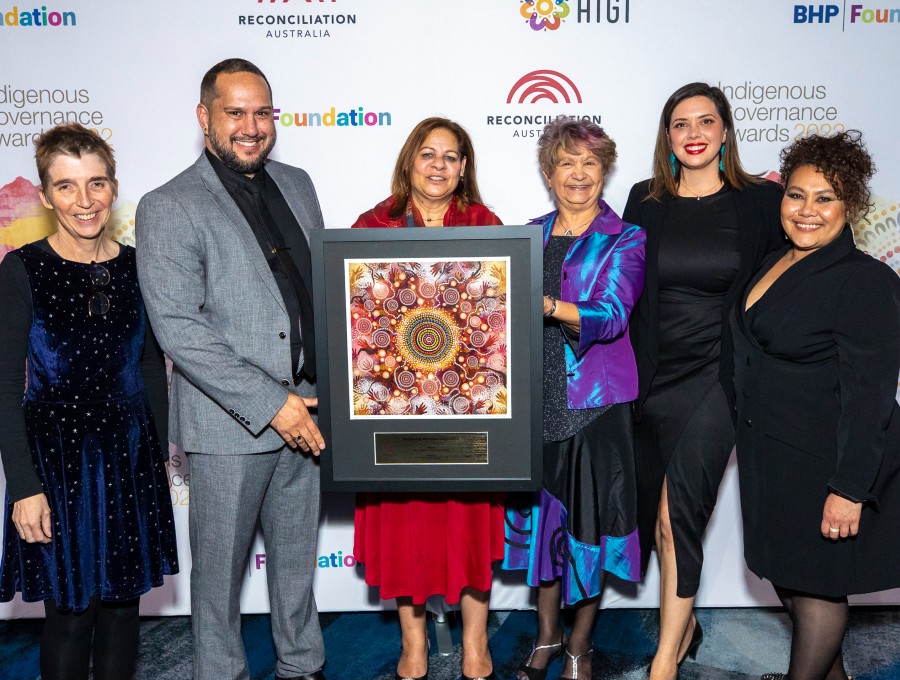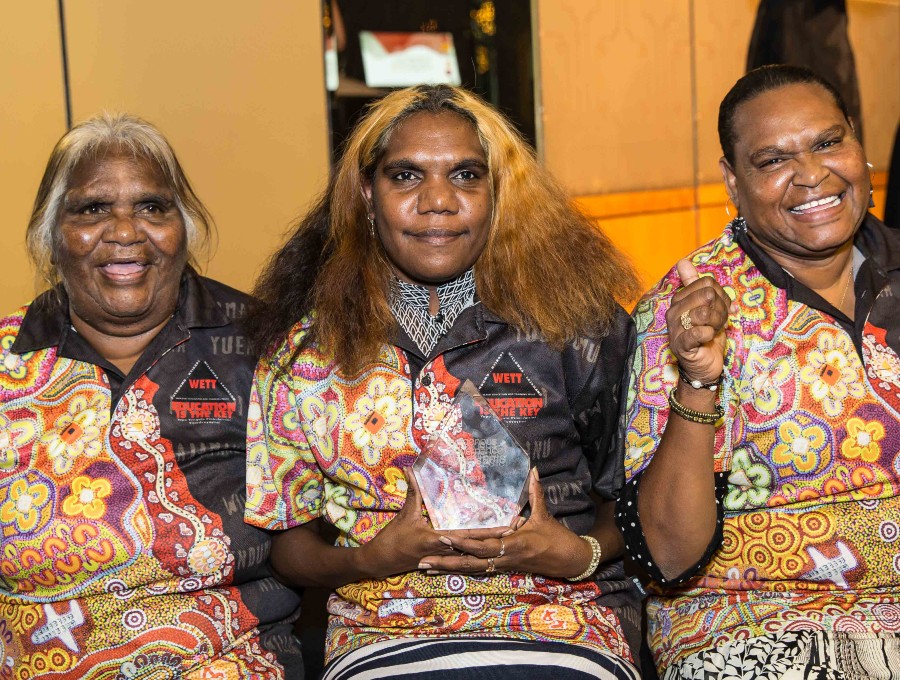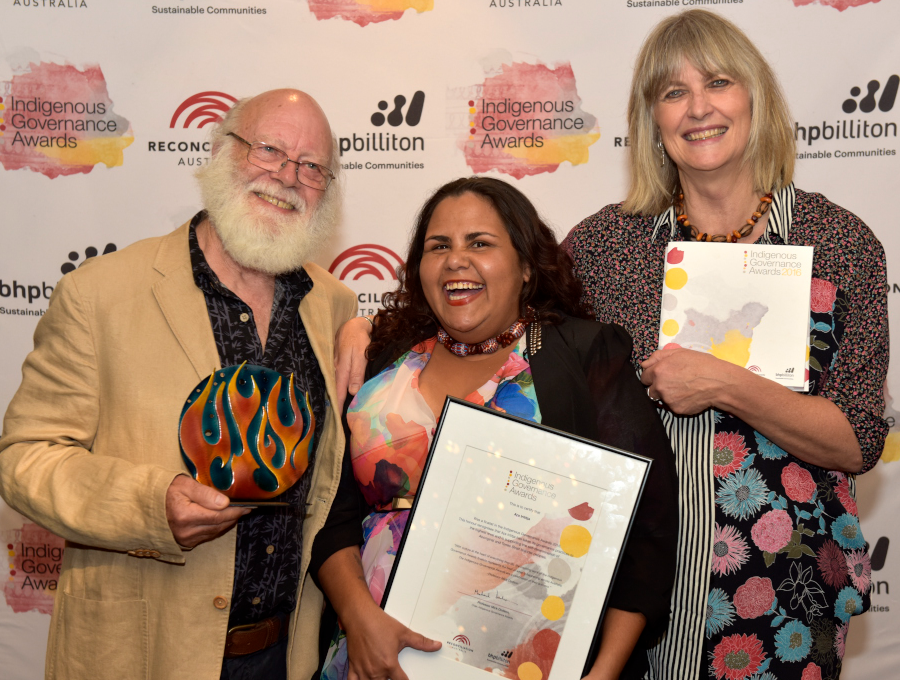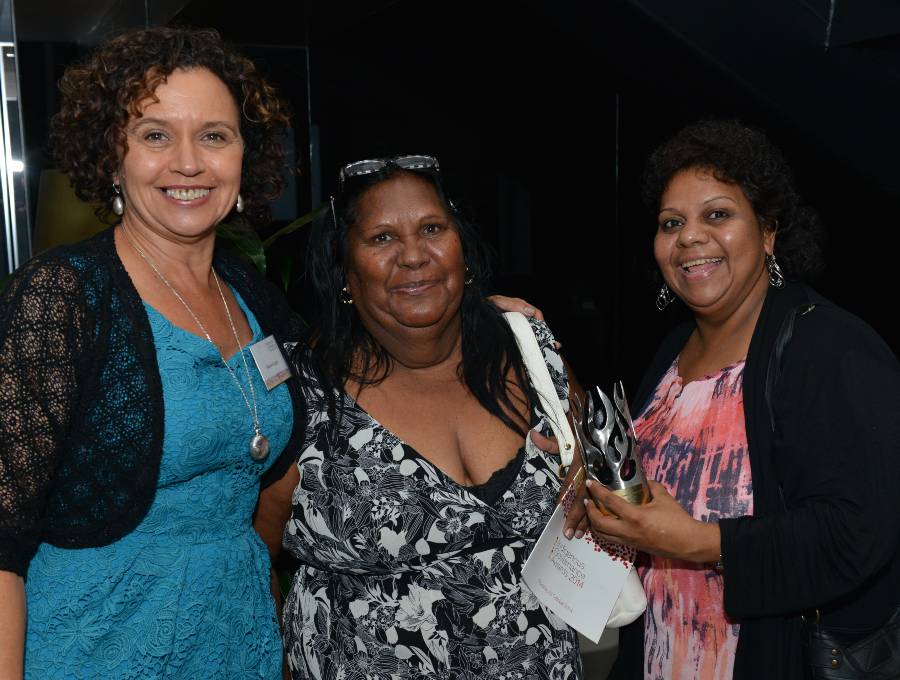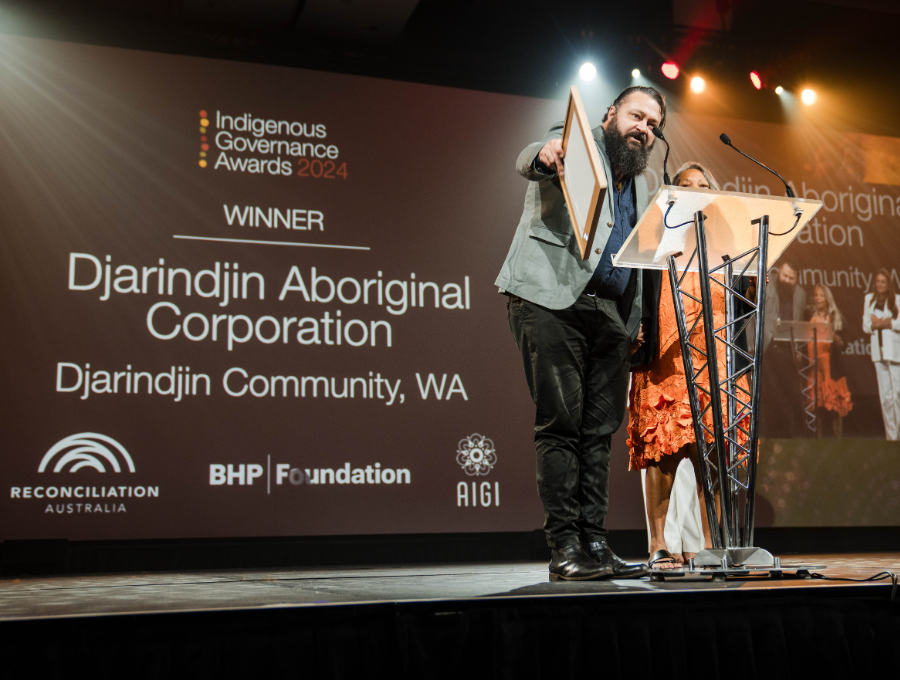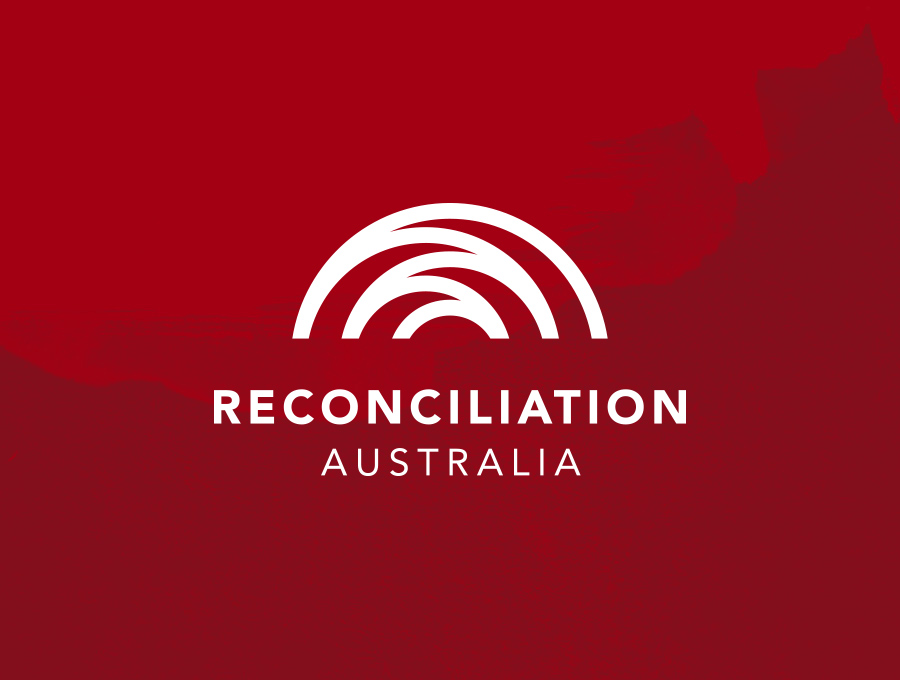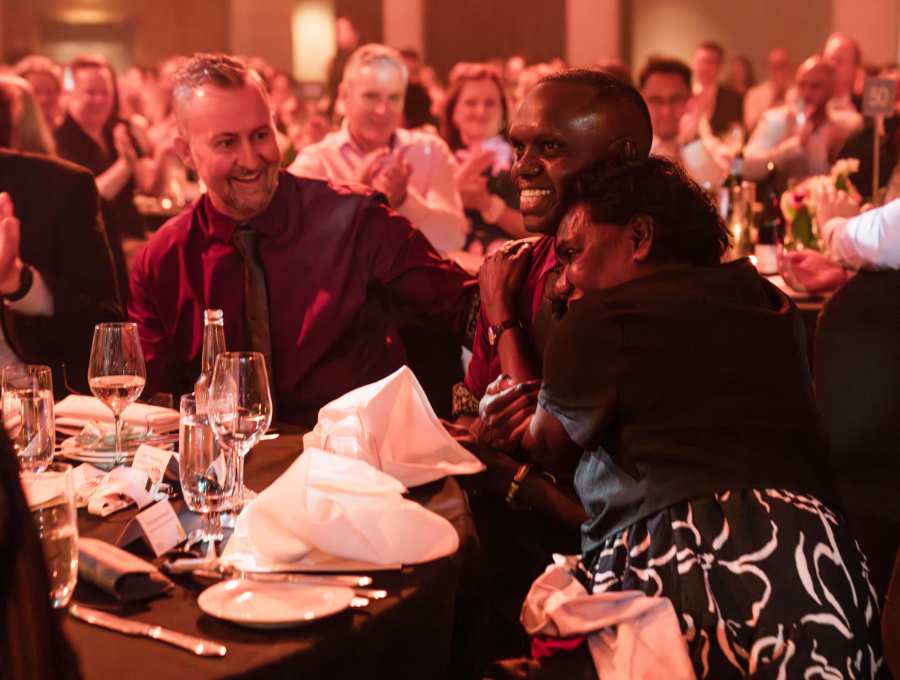The Indigenous Governance Awards share the success of Aboriginal and Torres Strait Islander communities and organisations from around Australia.
The awards are held every two years and are proudly presented in partnership by Reconciliation Australia, the Australian Indigenous Governance Institute, and the BHP Foundation.
2024 winners and finalists
Thanks to all who applied and nominated for the Indigenous Governance Awards 2024. The judges visited each of the nine finalists between July and October, before assessing and deciding on each category winner.
Winners were announced at the Indigenous Governance Awards Gala on 6 November 2024.
Category 1
- Learning on Country Program (Northern Land Council), NT
- Loddon Mallee Aboriginal Reference Group, VIC
- Wintjiri Wiru Working Group, NT
Category 2
- Melythina Tiakana Warrana Aboriginal Corporation, Gladstone, TAS
- Mibbinbah Spirit Healing, Warwick, QLD
- Voice of Hope Aboriginal Corporation, Thornlie, WA
Category 3
- Djarindjin Aboriginal Corporation, Djarindjin Community, WA
- Granites Mine Affected Area Aboriginal Corporation, NT
- Wajarri Yamaji Aboriginal Corporation, WA
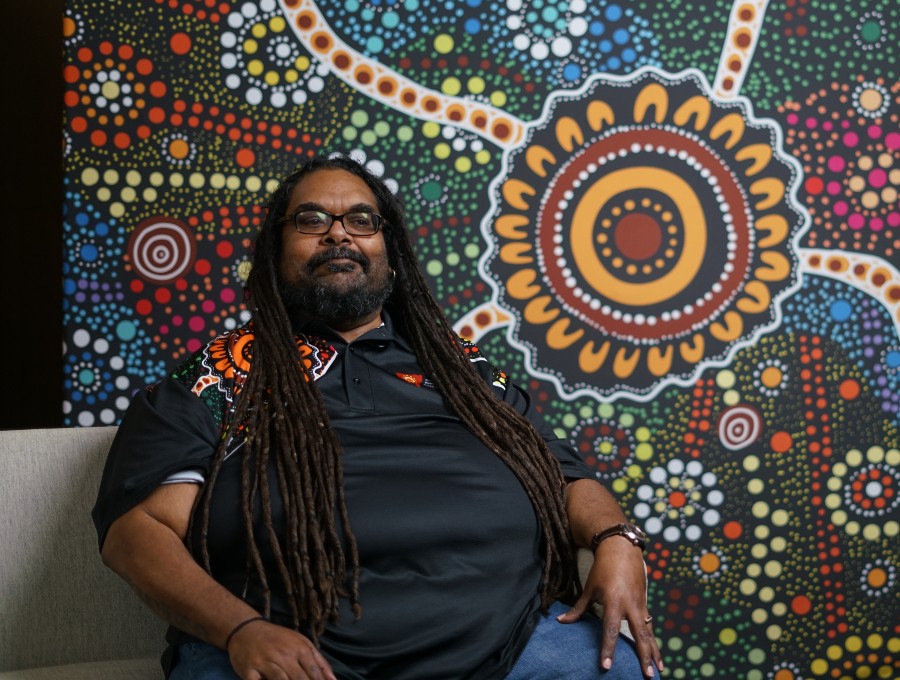
Read on to find out which category relates to your organisation and how the application and selection process works.
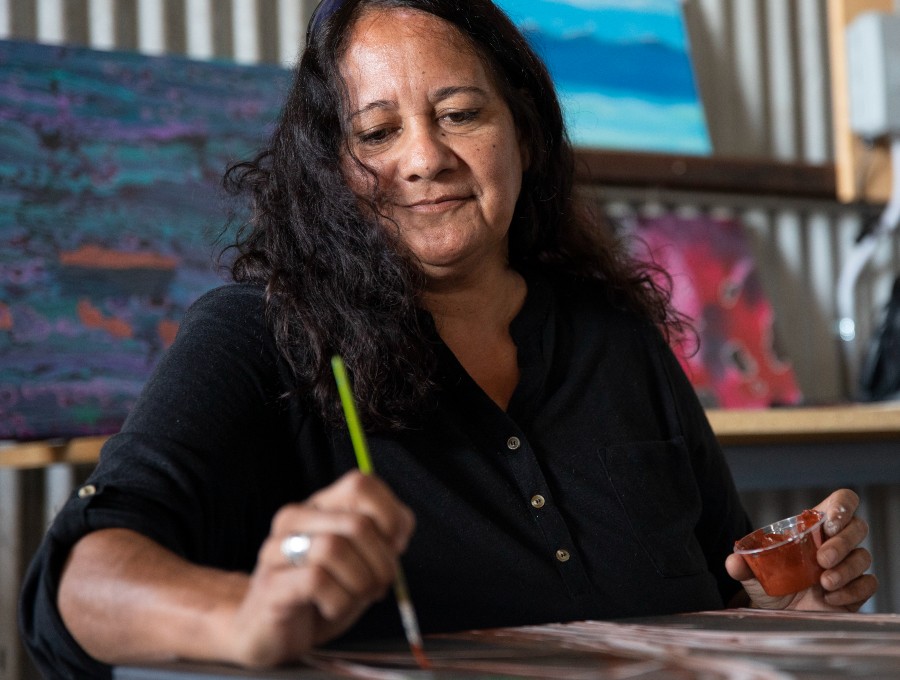
Applications are judged on five key criteria, with the winners of each category receiving $20,000 and an awards package.
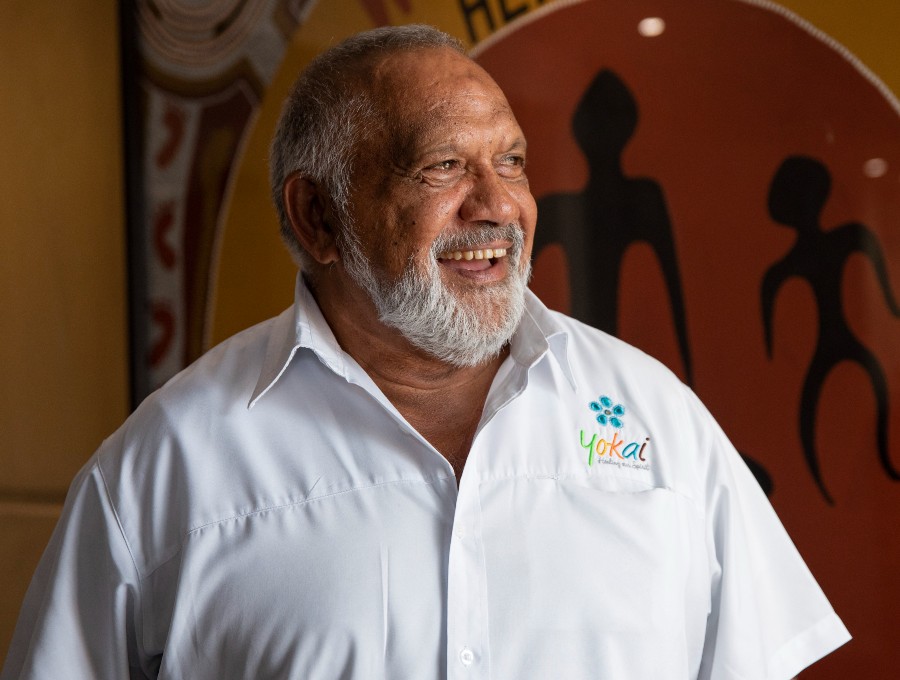
Join us as we look back on the amazing winners and finalists from previous Indigenous Governance Awards.
Categories
There are three award categories for outstanding examples of governance in Indigenous-led organisations:
Category 1: Non-incorporated organisations, initiatives or projects.
Category 2: Small to medium incorporated organisations.
Category 3: Large incorporated organisations.
Application and Selection Steps
- Apply or nominate: submit an application with supporting documents or nominate an organisation.
- Review and shortlist: review committee makes a shortlist for each category.
- Judging: independent judging panel chooses three finalists for each category.
- Site visits: judging panel members will visit each finalist which includes photos and video and possible media coverage.
- Final selection: judging panel decides winners and highly commended recipients.
- Announcement: winners and highly commended recipients announced at the awards event.
The judging panel gives feedback to all organisations that apply. Applying is a great way to reflect on your governance and get expert advice based on your application.
Prizes
$20,000 for winners of each category.
All finalists receive an awards package:
- An offer to participate in a partnership opportunity with a leading RAP organisation, as chosen by the finalist
- A Reconciliation Australia award to commemorate their achievement
- Travel for two members to attend the awards event
- A communications package of photos and footage from the judges’ site visit to their organisation
- Promotional coverage including on the awards website
- An invitation to meet with Parliamentarians to promote Indigenous Governance in practice.
Judging Criteria
Self-determination and strengthening self-governance and leadership for its members and community, including that:
- the governance arrangements put Aboriginal and Torres Strait Islander people in the driver’s seat
- the organisation actively engages and maintains positive relationships with its stakeholders and wider community
- it encourages community participation and listens to feedback
- it pursues long-term goals that align with their community’s aspirations.
Effectiveness in solving problems, overcoming challenges and achieving positive results, including whether:
- the governance model and processes help it to achieve its purpose
- it has clear definitions of governance success and a process to measure achievement
- it has proven processes to manage disputes, complaints, or conflict.
Cultural legitimacy in fitting, reflecting, and strengthening the community’s or region’s culture, including whether:
- the community or region’s cultural beliefs, values, rules and traditions are at the heart of its governance model and processes
- culture plays an important role in how it functions
- it actively engages with members/community and reflects their interests and it has the support of the community
- it adapts to the needs of the community.
Innovation and ingenuity in delivering unique, creative and resourceful governance practices in response to local conditions and circumstances.
Sustainability in planning for the future and adapting to changing circumstances, including whether:
- it has a clear vision and prepares for the future
- it’s open and responsive to change and adaptation
- it has established a process for succession
- it actively develops future leaders.
Previous Winners & Finalists
Take a look at the winners and finalists from previous Indigenous Governance Awards:
The Indigenous Governance Awards 2020 were postponed due to the pandemic.
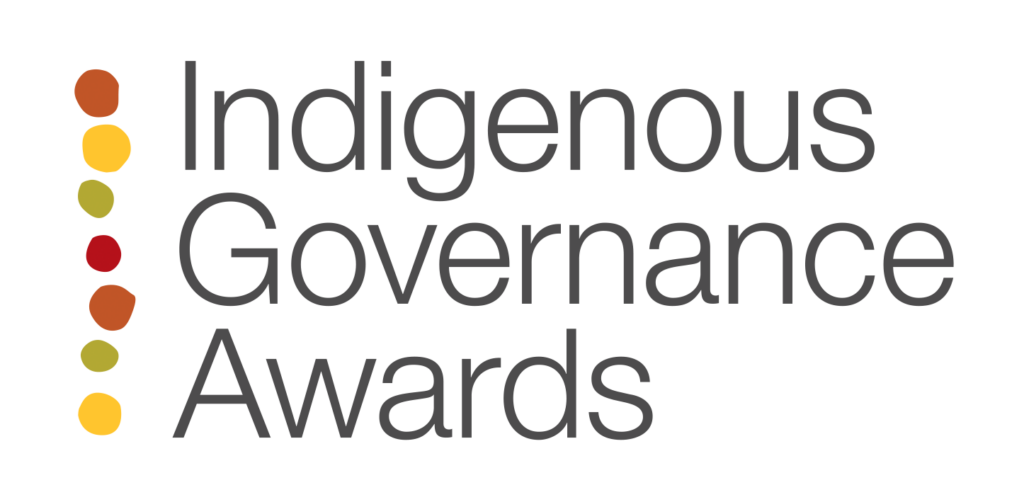


Subscribe for updates
Get the latest news on Indigenous governance projects and awards.

